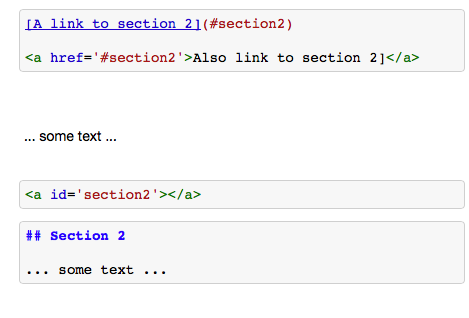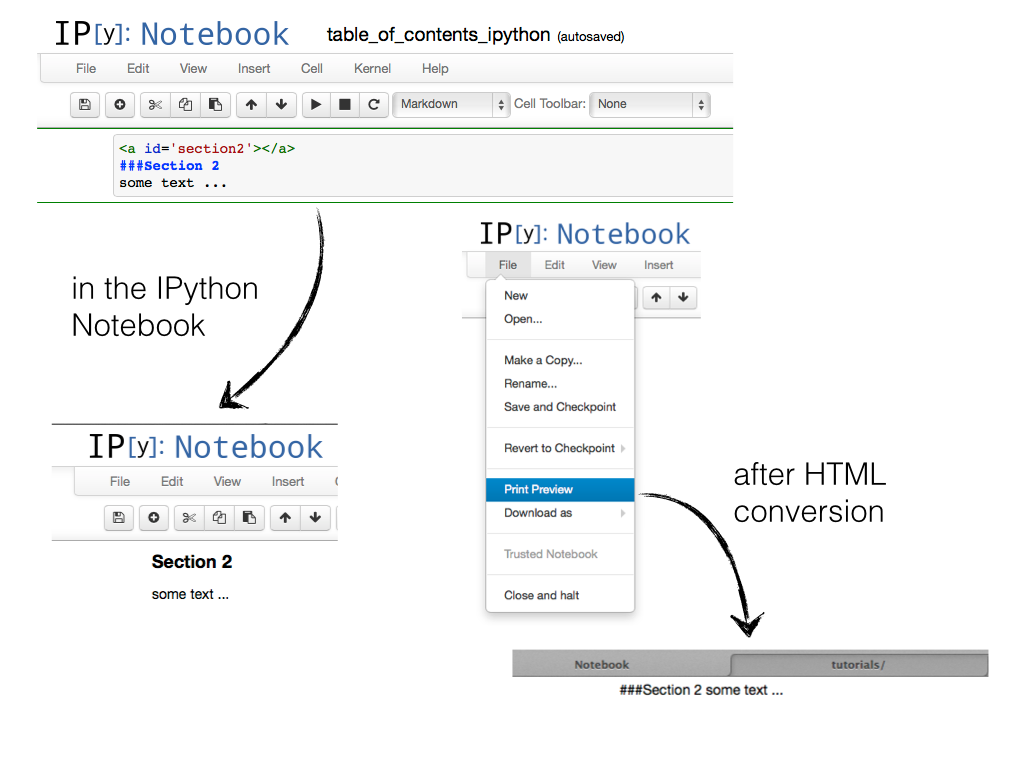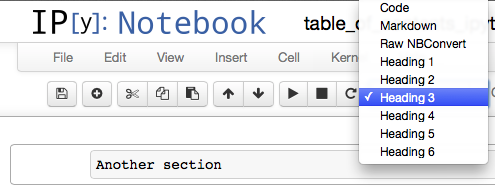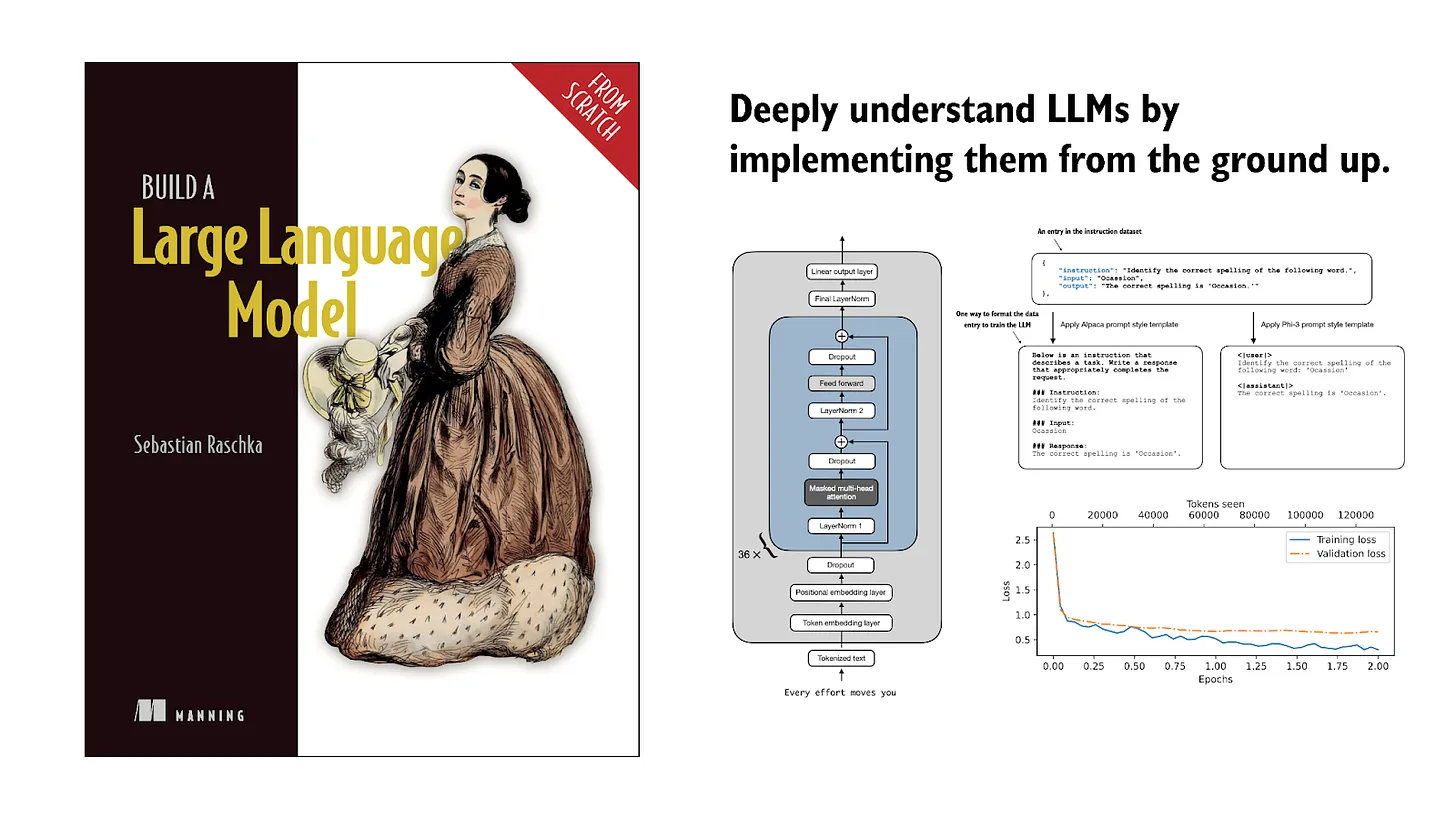Creating a table of contents with internal links in IPython Notebooks and Markdown documents
Many people have asked me how I create the table of contents with internal links for my IPython Notebooks and Markdown documents on GitHub. Well, no (IPython) magic is involved, it is just a little bit of HTML, but I thought it might be worthwhile to write this little how-to tutorial.
You can find and download many example IPython Notebooks in my GitHub repository
For example, click this link to jump to the bottom of the page.
The two components to create an internal link
So, how does it work? Basically, all you need are those two components:
- the destination
- an internal hyperlink to the destination

1. The destination
To define the destination (i.e., the section on the page or the cell you
want to jump to), you just need to insert an empty HTML anchor tag and
give it an id,
e.g., <a id='the_destination'></a>
This anchor tag will be invisible if you render it as Markdown in the
IPython Notebook.
Note that it would also work if we use the name attribute instead
of id, but since the name attribute is not supported by
HTML5 anymore, I would suggest to just use the id attribute, which
is also shorter to type.
2. The internal hyperlink
Now we have to create the hyperlink to the
<a id='the_destination'></a> anchor tag that we just created.
We can either do this in ye goode olde HTML where we put a fragment
identifier in form of a hash mark (#) in front of the name,
for example,
<a href='#the_destination'>Link to the destination'</a>
Or alternatively, we can just use the slightly more convenient Markdown
syntax:
[Link to the destination](#the_destination)
That’s all!
One more piece of advice
Of course it would make sense to place the empty anchor tags for you
table of contents just on top of each cell that contains a heading.
E.g.,
<a id='section2'></a>
###Section 2
some text ...
And I did this for a very long time … until I figured out that it wouldn’t render the Markdown properly if you convert the IPython Notebook into HTML (for example, for printing via the print preview option).
But instead of
Section 2
it would be rendered as
###Section 2
which is certainly not what we want (note that it looks normal in the
IPython Notebook, but not in the converted HTML version). So my favorite
remedy would be to put the id-anchor tag into a separate cell just
above the section, ideally with some line breaks for nicer visuals.

Solution 1: id-anchor tag in a separate cell

Solution 2: using header cells
To define the hyperlink anchor tag to this “header cell” is just the text content of the “header cell” connected by dashes. E.g.,

[link to another section](#Another-section)
[Click this link and jump to the top of the page]
You can’t see it, but this cell contains a <a id='bottom'></a>
anchor tag just below this text.

If you read the book and have a few minutes to spare, I'd really appreciate a brief review. It helps us authors a lot!
Your support means a great deal! Thank you!